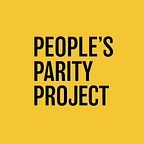Our courts are run by ex-prosecutors and corporate lawyers, not people with my values
In a couple years, all my hard work will have paid off when I graduate from Georgia State University College of Law and prepare to pass the bar exam. I hope to find a job that allows me to fight for workers and consumers who have been wronged by negligence or a malicious system. Who knows where my career path will eventually take me?
If the past is any indication, this career path probably won’t lead to me becoming a judge. Georgia’s bench, like those of most states, is full of former prosecutors or corporate attorneys. These judges came to the bench after representing the powerful, rather than the people.
It’s very rare for public defenders or legal aid attorneys to make it to the bench. This has begun to change at the federal level, with President Joe Biden appointing jurists like Justice Ketanji Brown Jackson with experience as public defenders or civil rights attorneys. But in Georgia’s state courts, there are only a handful of judges with that kind of background.
A new report from the People’s Parity Project examines the professional backgrounds of judges on the state’s appellate courts and Superior Courts. Statewide, around half of the judges have experience as prosecutors, while only a handful served as legal aid attorneys or public defenders. The percentage of ex-corporate lawyers and former prosecutors is even higher at the appellate level. Only a couple appellate judges have experience representing injured workers and consumers or victims of discrimination, but many have represented the very corporations charged with injuring or discriminating against those people.
What kind of message does this disparity send to a young lawyer like myself? Could I ever become a judge after working as a public defender, representing underprivileged people facing the loss of their freedom? There must be many promising young lawyers who choose not to pursue such careers precisely because they’d like to reach the bench some day.
The homogeneity on Georgia’s bench could also lead many people to question whether the justice system is truly fair or whether it’s biased in favor of the powerful institutions (the state and corporations) that the judges spent years representing. Studies have shown correlations between judges’ professional backgrounds and their rulings on the bench. Professor Joanna Shepherd at Emory University released a study in 2021 finding that judges with corporate or prosecutorial experience were more likely to side with corporations than judges who had represented individuals.
We must take action to improve the professional diversity of Georgia’s judiciary. This disparity cannot be ignored. Georgia’s courts and our state constitution are becoming even more important, as we see many of our federal constitutional rights eroded by a radical U.S. Supreme Court.
Fortunately, voters in our state have the ultimate say over who sits on the bench. And they should find out whether the candidates on their ballot have spent their careers representing working Georgians or the select powerful institutions.
Gov. Brian Kemp also has enormous power over the judiciary. At the appellate level, most judges are appointed before appearing on the ballot. Kemp has responded to criticism that his initial nominees lacked racial or ethnic diversity by appointing more Black judges. But the governor still has a long way to go when it comes to putting lawyers who’ve represented real people on the bench.
I came to law school to make a difference for real people, not corporations’ bottom lines. Should that keep me and others like me from advancing to the bench? Who benefits from a system that values representatives of corporations or the state over those assisting the people most intimately affected by our state’s laws?
As I advance in my legal education, I’m thinking about my future and the future of our state. We need judges in Georgia who have represented real people. Georgians would be much better served by a diverse bench that includes judges who’ve fought for their rights, and it’s time that we all start fighting for a pro-people judiciary.
Angela Rofael is a first-year public-interest law student at Georgia State University where she focuses on racial justice, voting rights, and police accountability. Billy Corriher is the State Courts Manager at People’s Parity Project and a graduate of Georgia State College of Law.
